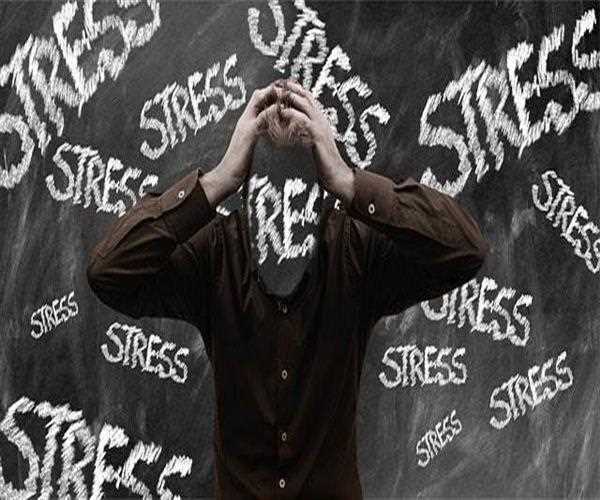
25-Feb-2022 , Updated on 2/25/2022 6:38:21 AM
Stress: Signs, Symptoms and Management.
If you feel like you are losing everything, remember trees lose their leaves every year, and they stand tall and wait for the better days to come.
What is actual stress?
Stress is a natural human emotion that affects everyone at some point in their lives. In fact, every human body is designed to recognize and respond to stress. Your body develops a physical response to changes or difficulties (stress). That's the tension.
Your body's stress responses help it adapt to the new environment. Stress is beneficial, it keeps us alert, motivated, and ready to avoid danger. The stress response, for example, helps your body work harder and stay awake as an important event approaches. When stress persists without rest or relaxation moments, it becomes a problem.
What happens to your body when you are stressed?
The autonomic nervous system controls your heart rate, respiration, vision, and other functions. The body's built-in stress response, called the 'Fight-or-Flight Response', helps to
cope with stressful situations.
When a person is exposed to (long-term) stress for a long time, constant exposure to the stress response results in dehydration of the body. Symptoms manifest as physical, emotional, and behavioral manifestations.
-
The physical properties of stress are as follows:
- Pain is a common phenomenon.
- Chest pain or feeling like your heart is beating is a sign that your heart is beating.
- Insomnia or fatigue.
- Headache, dizziness, or chills may occur.
- Very high blood pressure.
- Jaw tightness or muscle tension.
- Stomach or bowel problems.
- The immune system is weakened.
- Stress can cause a variety of emotional and psychological symptoms, including:
- Irritability or fear.
- A panic attack occurs.
- Sorry.
- People with chronic stress often try to cope by engaging in unhealthy activities:
- Gambling.
- Possible consequences are also the onset of overeating or eating disorder.
- Forced shopping or internet browsing.
- Smoking.
- Use of illicit substances.
- What methods are used to determine stress?
- Stress is a subjective experience that cannot be measured by examination. Only the person who has it can tell how terrible it is. Healthcare provider questionnaires can be used to understand your stress and where it is changing your life.
- If you already have chronic stress, your health care professional can assess stress-related symptoms. For example, high blood pressure can be detected and treated.
- What are some stress relief methods?
- You can not stop stress, but you can prevent things from getting overwhelmed by using the following tips regularly:
- When you start to feel stressed, do some exercise. Even a short walk can make you feel good.
- At the end of each day, take a minute to think about what you have achieved, what you have not done.
- Create daily, weekly and monthly goals. Reducing your attitude makes you more responsible for both immediate and long-term responsibilities.
- It is a good idea to talk to a counselor or your healthcare practitioner about your concerns.
- What are some stress reduction techniques?
- Several daily strategies can help you manage stress:
- Mindfulness, yoga, tai chi, relaxation techniques, and muscular relaxation are all good ways to relax. Programs are offered online, in mobile applications, and at many gyms and community centers.
- Every day, take care of the body. Eating well, exercising regularly, and getting enough sleep can help your body cope with stress more effectively.
- Maintain a cheerful attitude and say thank you for the positive aspects of your day and life.
- Accept the fact that you can not handle it all. Discover techniques to relax and not have to worry about things you can not control.
- Learn to say 'no' to new tasks when you are too busy or anxious.
- Maintain relationships with people who calm you down, make you happy, provide emotional support and help you in practical matters. So that the tension is not high, a friend, family member, or neighbor can listen well or share tasks.
- When it comes to stress, how long does it last?
- Stress can be long or short depending on how your life develops. The physical, psychological, and behavioral effects of stress can be largely avoided by following stress management practices regularly.

Student
An inquisitive individual with a great interest in the subjectivity of human experiences, behavior, and the complexity of the human mind. Enthusiased to learn, volunteer, and participate. Always driven by the motive to make a difference in the sphere of mental health - and normalize seeking help through a sensitive and empathetic approach
Join Our Newsletter
Subscribe to our newsletter to receive emails about new views posts, releases and updates.
Copyright 2010 - 2026 MindStick Software Pvt. Ltd. All Rights Reserved Privacy Policy | Terms & Conditions | Cookie Policy